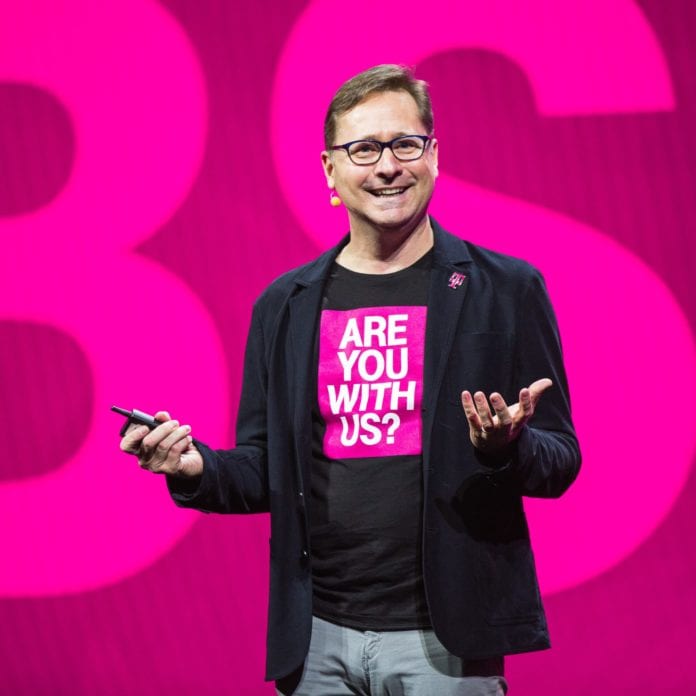Mike Sievert replaces John Legere as CEO of the combined T-Mobile
It’s official: Sprint is no more, and the New T-Mobile is here. T-Mobile US CEO John Legere has formally passed the torch to Mike Sievert, a month earlier than expected.
Legere will continue to serve out the remainder of his term as a member of the company’s board of directors, through the annual shareholder meeting scheduled for June. In a statement, Legere said that though he had planned to stay through the end of his contract on April 30, it “made more sense” to have the leadership transition take place now.
“Now it’s time for me to hand the reins over to Mike Sievert,” he said. “The board of directors and I agree that it makes perfect sense for Mike to assume his leadership role on day one of the new company. He’s ready! I had originally planned to stay on through the end of my contract on April 30, 2020, but it makes much more sense to transition this responsibility to Mike today. Mike was the first person I hired at T-Mobile and I have tremendous faith in his ability to take the Un-carrier into its next SUPERCHARGED chapter” [Emphasis Legere’s]. … I cannot wait to see what this entire team does next!”
Sievert, who served as T-Mobile US’ COO until today, said that Legere “has changed what it means to be a CEO.
“Everything that T-Mobile has accomplished is the result of his vision for what a different kind of wireless provider could be. John IS what the Un-carrier is all about: advocating for customers at every turn, forcing us to think differently and always driving for more. He has always pushed the boundaries of what’s possible and pushed us to do the same. His leadership has made us what we are today, and we will take that into the future,” Sievert added.
T-Mobile US is technically the parent company of the combined entity (called T-Mobile) and the company’s stock will continue to trade on NASDAQ as TMUS. As previously reported, Softbank, which was the majority stakeholder in Sprint, surrendered nearly 49 million T-Mobile shares immediately after the merger closed, as part of an agreed-upon tweak to the merger agreement that results in a larger stake for T-Mobile US parent company Deutsche Telekom.
In a climate of unprecedented network demand and an uncertain economic environment, the company will face the task of consolidating the two networks — which is expected to deliver most of the expected synergies from the merger — and living up to its lofty promises to deliver an extensive nationwide 5G footprint, including providing 99% of the U.S. population with 5G within six years, with average 5G speeds of 100+Mbps, and extending coverage to 90% of the rural population with average speeds of 50 Mbps.
“During this extraordinary time, it has become abundantly clear how vital a strong and reliable network is to the world we live in. The New T-Mobile’s commitment to delivering a transformative broad and deep nationwide 5G network is more important and more needed than ever and what we are building is mission-critical for consumers,” said Sievert in a statement.
The carrier pointed to its newly introduced T-Mobile Connect plan, which was launched ahead of schedule, and lower-priced options from Metro by T-Mobile as evidence of its continued push for lower prices. T-Mobile Connect has monthly options as low as $15 per month and was launched on March 23 as part of the carrier’s response to the COVID-19 pandemic. T-Mo said that its other previously announced initiatives “will launch soon,” including special deals for first responders and free internet access and hardware for 10 million households over the next five years.

